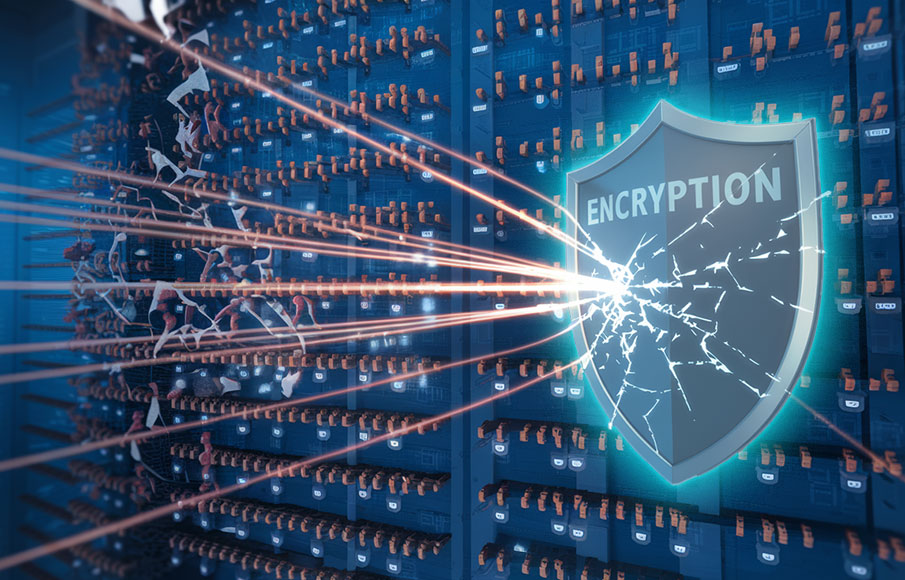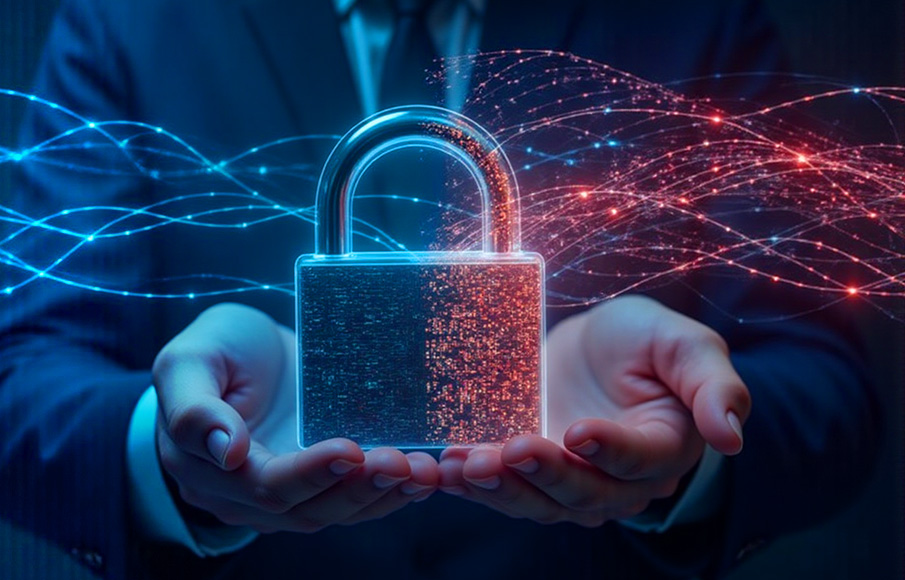Can Quantum Computing Break Traditional Encryption? What Experts Say
- 10 December 2024

Technology is in a constant state of evolution, making cybersecurity a perpetual challenge for organisations concerned about their data confidentiality. With the advent of quantum computers on the horizon, current-day encryption methods are in danger of becoming obsolete, thanks to the vastly superior computing capabilities of quantum technology.
If a Quantum Computer with sufficient qubits were developed, it could theoretically break 2048-bit RSA encryption in a few hours, making it a major risk for organisations that handle sensitive information. Governments, financial institutions, and corporations are all vulnerable to having their most closely guarded data exposed. As the quantum era approaches, the race is on to implement new encryption standards that can withstand attacks from these revolutionary machines.
How Will Quantum Computers Break Encryption?

The primary threat comes from the quantum computer’s ability to solve mathematical algorithms, such as de-factorising large numbers or solving logarithm problems[1] used by current cryptography, at a much faster speed than traditional computers. This process underpins many encryption systems used today.
A quantum computer functions by using qubits, which can represent both 0 and 1 simultaneously due to superposition. This fundamental difference allows quantum computers to process vast amounts of data more efficiently than the binary code a classical computer uses.
Dangers of Quantum Decryption

Harvest Now, Decrypt Later (HNDL) Attacks
HNDL attacks are an existing method used by hackers to stockpile data for the future. As quantum computing is not yet widely available, our modern cryptographic algorithms have not yet been fully overcome. These hackers harvest vital data with the intention of making use of quantum decryption to gain access to it eventually. Certain types of information, such as personal data, health records and financial records, remain relevant far into the future. This means that the encrypted data is permanently compromised once a hacker gains access to it, even if it cannot be exploited on the spot.
Blockchain Vulnerabilities
Blockchain technology is primarily used in cryptocurrency, which both modern businesses and investors utilise regularly. Cryptocurrency makes use of public-key cryptography (PKC) encryption, which is susceptible to quantum computer threats. This places trillions of dollars at risk of quantum attacks.
To find out more about these quantum cybersecurity threats, click here.
How to Safeguard Your Organisation With Quantum Cryptography

Thankfully, there are emerging methods to protect this sensitive information against quantum decryption. One of the key solutions is Quantum Key Distribution (QKD), a technology that secures communication channels by generating encryption keys using quantum mechanics. This effectively enables unbreakable encryption.
How Does Quantum Key Distribution Work?
Quantum Key Distribution (QKD) is a communication method which uses unique features of quantum mechanics to securely exchange a secret key to encrypt and decrypt messages. They utilise light particles known as photons to generate these keys. Once a secure key is generated, it can in turn be used to encode and securely transmit information via a quantum channel between two parties.
When tapping or eavesdropping occurs, the photons physically change. This results in an anomaly in the key’s quantum measurement. If the anomaly exceeds a certain threshold, the key is compromised and will be discarded without data being decrypted. This enables the detection of potential eavesdroppers on quantum channels and creates a theoretically unhackable encryption method, which makes use of laws of physics instead of static algorithms.
SPTel’s QKD Services
SPTel provides dedicated QKD-as-a-service, enhancing data security for business communications and ensuring future-proof protection without you having to own or manage your QKD hardware. This offering is part of IMDA’s NQSN+ initiative, where SPTel in partnership with SpeQtral, is an appointed operator to build Singapore’s first Nationwide Quantum-Safe Network and spearhead quantum encryption development. We aim to position Singapore businesses favourably against the future threat of quantum computing. This solution will enable secure inter-company communication and facilitate Quantum-Safe Networking across organisations within Singapore.
For those requiring Quantum-Safe Data Centre (DC) connectivity, SPTel’s Quantum-Secure Data Centre Interconnect (DCI) Network provides a ready platform to secure your inter DC transmissions. Customers can subscribe to our QKD-enabled high bandwidth DCI connectivity service, which is particularly beneficial for finance, healthcare, and government industries that require a high standard of data security. These entities can leverage our use of quantum technology to safeguard valuable information against cyber threats.
Further Quantum Encryption Development
As of 14 August 2024, the Monetary Authority of Singapore (MAS) has partnered with multiple organisations, including SPTel, in order to study further applications of QKD technology for financial services. Upcoming proof-of-concept trials aim to safeguard the financial sector from quantum computers, and improve technical competencies in adopting quantum security solutions.
Preparing For a Quantum Future With SPTel

SPTel is taking proactive steps to address the looming threat of quantum computing to current encryption methods. Together with our partner SpeQtral, we deliver quantum-safe services to protect crucial data, and prepare for a future of post-quantum algorithms. Key benefits of our QKD Service include:
- Unbreakable encryption keys
- Real-time threat detection
- Scalable and flexible implementation
- Future-proofing of security measures
To explore these advances further and understand how quantum security can be integrated into existing systems, contact SPTel today to learn more about how we can help you chart a path towards a future of post-quantum cryptography.
[1] Factorising is used in RSA (one form of cryptography) while modern cryptography uses Elliptic-Curve algorithms, which are not based on factorisation but logarithms.












